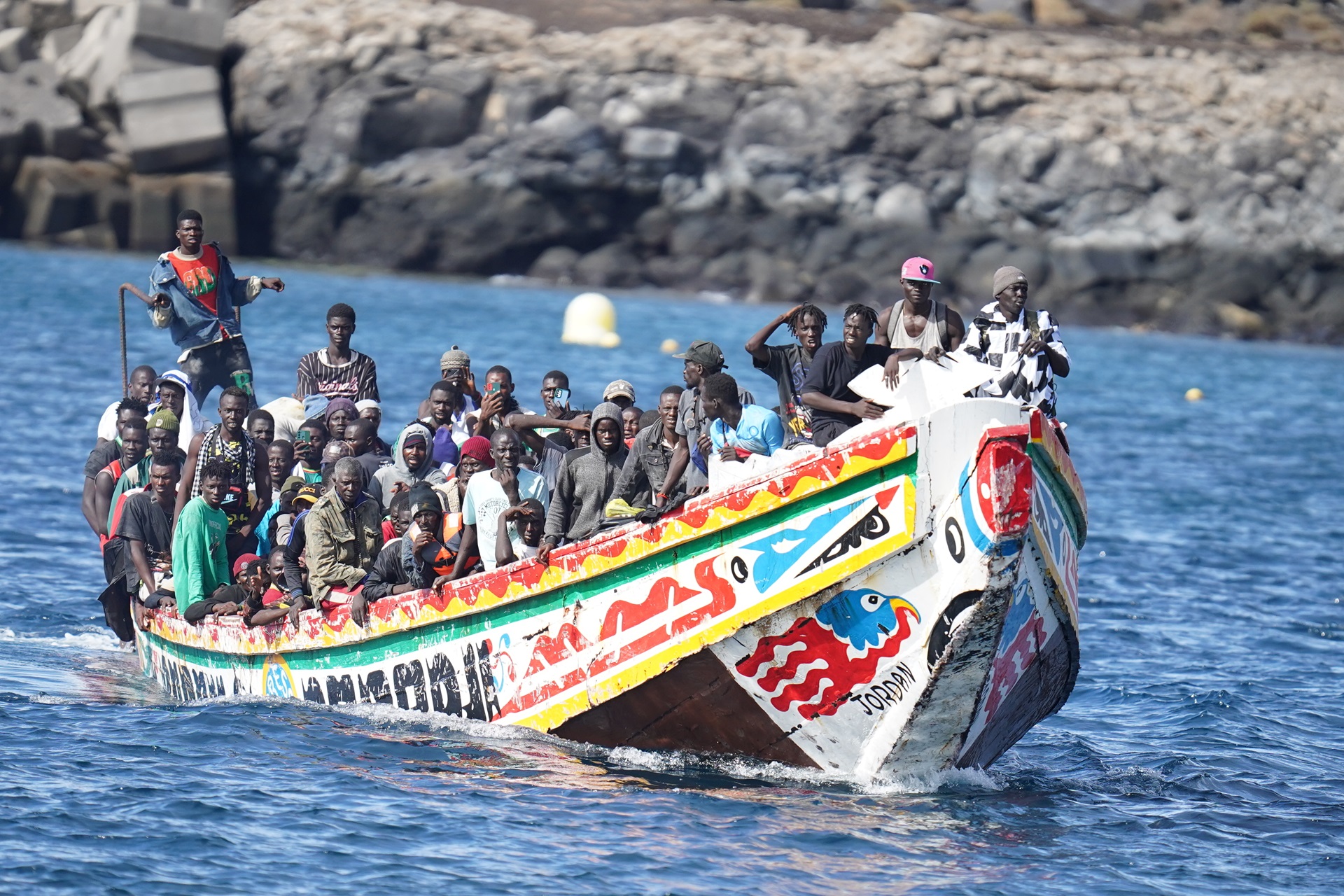A total of 6,618 people died trying to reach Spanish shores in 2023, a figure which represents an average of 18 per day, almost tripling the numbers of 2022, when 2,390 migrants lost their lives. This is the data taken from the report Monitoring the Right to Life from the collective Walking Borders (Caminando Fronteras), which presented it this Tuesday in Madrid, and already situates 2023 as the "deadliest" year since the organization started keeping records in 2007. Among those who lost their lives on access routes to Spain in the year just ended were 363 women and 384 children.
Of the total number of deaths, the vast majority - 6,007 - died on the Atlantic route, attempting to reach the Canary Islands, while 434 people lost their lives on the Algerian route in the western Mediterranean; 147 migrants, in the Straits of Gibraltar and 30, on the Alborán route (far western Mediterranean). As the statistics show, in 2023 the number of migrant boats arriving in the Canary Islands caused the numbers of immigrants seeking to enter Spain irregularly by sea and land to 56,852, in percentage terms, an increace of 82.1% over the previous year, according to Spanish interior ministry. Of these, 39,910 were on the Atlantic route, 154.5% more than in 2022.
The Canary Islands route, the deadliest
Walking Borders, which regularly publishes the figures of deaths at sea of those heading towards Spain, obtained through the alerts they receive from the sea and through the information from migrant families and communities, has counted 84 boats that disappeared with all those on board lost over the past year. Most of the victims were concentrated in the months of October (2,370), June (1,197), and November (1,023). Among the dead are people from 17 countries: Algeria, Bangladesh, Cameroon, Ivory Coast, Gambia, Guinea Conakry, Comoros Islands, Mali, Morocco, Mauritania, Palestine, Democratic Republic of Congo, Senegal, Syria, Sudan , Tunisia and Yemen.
The information released on Tuesday once again places the Canary route, across the Atlantic, as the "deadliest migratory region in the world" and, in particular, the focus is on the recent increase in migrant boat departures from further afield, such as Mauritania, Senegal and the Gambia. This increase in vessels from Senegal began in June, the result of the country's great social and political instability: more than half of the fatalities recorded on their way to the Canaries (3,176) travelled from this country. During 2023, the "longer and more dangerous" route was activated, which takes boats away from the coastal reference points and into the ocean to the island of El Hierro, as a result of the increase in migrant controls along the coasts of Senegal and Mauritania. Apart from those leaving directly from Senegal, the migrants who died in 2023 in their attempt to reach the Canary Islands travelled from the coast between Agadir (Morocco) and Dajla (Western Sahara), in the case of 1,418 of the fatalities; from The Gambia, from where 1,018 set off tragically, and Mauritania, port of departure for 395 of those who died.
Failure to activate rescue services
According to the research by Walking Borders, in many of the tragedies documented, search and rescue services were not activated or, if they were, it was with "significant delay" that put people's lives at risk. In addition, specialized services often got involved only in terms of rescuing those on board, but did not continue with searches for possible survivors at sea or the recovery of corpses. In this regard, the use of passive search methods has increased, consisting of issuing an alert to commercial and recreational vessels patrolling the area in case they locate migrant vessels, to the detriment of the activation of own means.
The coordinator and author of the report, Helena Maleno, denounces that "the omission of the duty to provide help has been established at the borders of the Spanish state as a practice of migration control". According to her analysis, the agreements with countries of origin such as Morocco are based on the externalization of borders, which leads Spain to "pressure" for the rescues to be carried out by these other countries, even when they don't have sufficient means.

